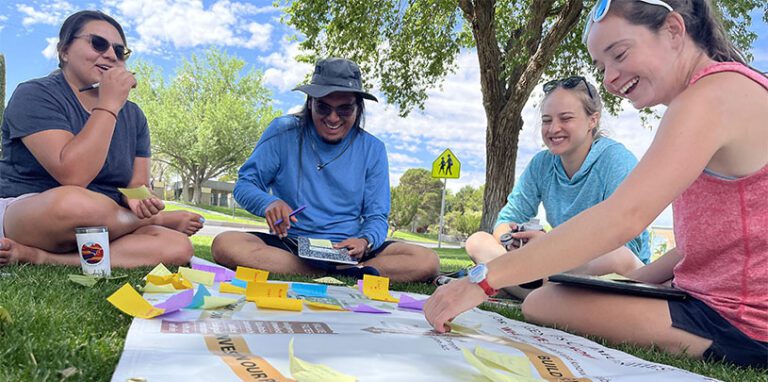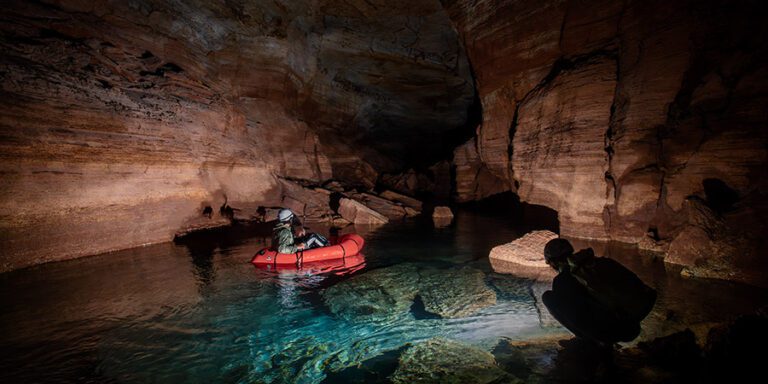Diversity, Equity, and Inclusion
Diversity, Equity, and Inclusion Statement
At the Grand Canyon Trust we are committed to honoring the inherent value of a diverse, equitable, and inclusive society and conservation movement.
We envision a Grand Canyon and a Colorado Plateau where wildness, the diversity of native plants and animals, clean air, and flowing rivers abound; sovereign tribal nations thrive; a livable climate endures; and people passionately work together to safeguard the region they love for future generations.
To realize our vision, we foster a workplace and conservation movement that is intentionally diverse, equitable, and inclusive. We can achieve outwardly only what we model within, and we recognize this evolution is an ongoing process.
What diversity, equity, and inclusion mean to us
We define diversity as psychological, physical, social, and cultural differences that occur among all individuals within the Trust’s community, including, but not limited to, race, ethnicity, nationality, religion, socioeconomic status, education, marital status, language, age, gender, sexual orientation, mental ability, physical ability, and learning styles. Our organization is one in which a variety of psychological, physical, social, and cultural characteristics exist and add value to our work.
We define equity as an approach based in fairness to dismantle systems that privilege some groups and individuals and disadvantage others within the conservation movement based on their identity. Equity ensures equal opportunity to thrive in the workplace and participate in the conservation movement. We acknowledge that because of systems of oppression and privilege, individuals and groups have different access to resources. To achieve equity, we must balance that disparity, which may mean dividing and sharing resources unequally in order for each person or group to have access to the same opportunity.
We define inclusion as the act of creating a conservation movement in which any individual or group is welcomed, respected, and valued, while being supported in fully participating without barriers based on identity. The Trust’s work environment embraces differences and offers respect in words and actions for all people.
Who we are
We recognize, support, and respect all identities. We welcome and respect the diversity of our staff, partners, volunteers, constituencies, and the communities in which we work. We are dedicated to ensuring that our commitment to inclusion and honoring our region’s diversity is evident in our staff, board of trustees, organizational structure, policies, goals, and work plans. We know that without diverse perspectives, ways of knowing, and backgrounds, we cannot achieve our potential as an organization. We foster an organizational culture of openness, vulnerability, integrity, and dignity. We encourage and support our staff to courageously and respectfully engage in difficult conversations about diversity and identity and to uphold our mission and commitment to shared values.
Our work
The Trust is inclusive both internally and externally because we seek and honor diverse perspectives. We acknowledge, support, and advocate for the respect for, and rights of, all individuals and their communities. The Trust values cross-cultural collaboration to engage in sustainable processes toward change that address the needs of all affected communities. We work to make the conservation movement accessible to historically marginalized and oppressed communities and prioritize their input, history, and knowledge. Without the insight from these perspectives, we will not achieve our goals.
Who we serve
The Trust seeks to respectfully and thoughtfully engage and support the communities in which we work. We recognize that the Colorado Plateau is Indigenous land and that the western conservation movement has historically excluded voices of Indigenous peoples who have practiced land stewardship since time immemorial. For these reasons, it is essential that we support Indigenous leadership and uphold our responsibility to elevate Indigenous voices. The Trust seeks to respectfully and thoughtfully engage and support the communities in the places we work, both Indigenous and non-Indigenous, and we create opportunities for people of all backgrounds, abilities, identities, and ages to become involved in our work. We listen to and incorporate diverse perspectives to foster an equitable conservation movement and empowered public.
Stories from the field



